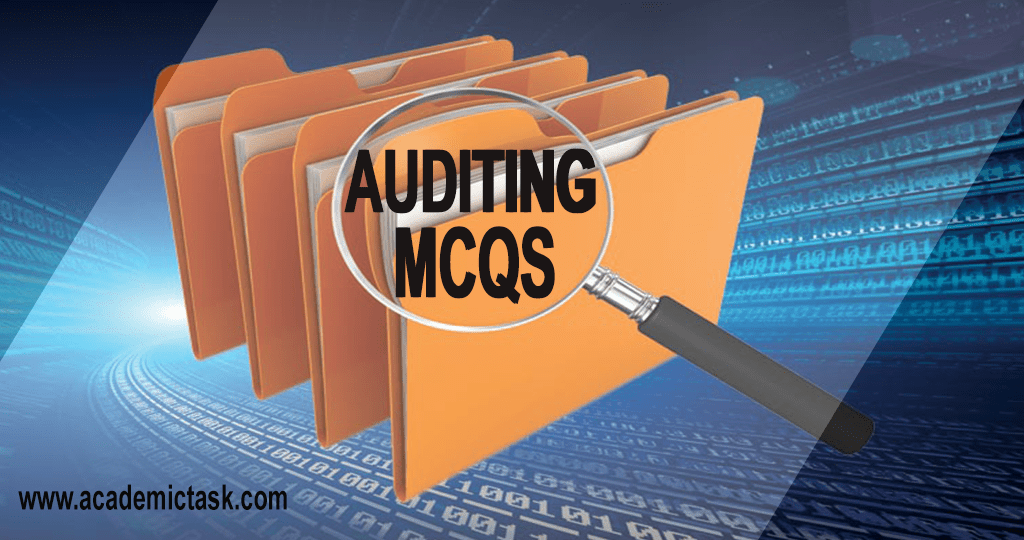
MCQs are one of the best ways to test a student’s comprehension of a concept. Academic Task subject experts have prepared these Auditing MCQs based on current trends and practices. Furthermore, the questions present in the auditing MCQs section will be beneficial for competitive examinations and tests (PPSC Test, FPSC Test
1.Auditing is compulsory for____________?
A. Small scale business
B. Partnership firms
C. Joint stock Companies
D. Proprietary Concerns
2. Concealment of shortage by delaying the recording of cash receipts is known as_____________?
A. Embezzlement
B. Misappropriation
C. Lapping
D. None of these
3. The fundamental objective of the audit of a company is to_____________?
A. Protect the interests of the minority shareholders
B. Detect and prevent errors and fraud
C. Assess the effectiveness of the company’s performance
D. Attest to the credibility of the company’s accounts
4. The concept of stewardship means that a company’s directors________________?
A. Are responsible for ensuring that the company complies with the law
B. Are responsible for ensuring that the company pays its tax by the due date
C. Safeguard the company’s assets and manage them on behalf of the shareholders
D. Report suspected fraud and money laundering to the authorities
5. Why do auditors concentrate their efforts on material items in accounts?
A. Because they are easier to audit
B. Because it reduces the audit time
C. Because the risk to the accounts of their being incorrectly stated is greater
D. Because the directors have asked for it
6. ____________ is a systematic examination of the books and records or a business?
A. Auditing
B. Vouching
C. Verification
D. Checking
7. The term ‘Audit’ is derived from a Latin word “audire” which means___________?
A. To inspect
B. To examine
C. To hear
D. To investigate
8. The main object of an audit is _____________?
A. Expression of opinion
B. Detection and Prevention of fraud and error
C. Both (A) and (B)
D. Depends on the type of audit.
9. An auditor is like a_______________?
A. Blood haunt
B. Watch dog
C. May both according to situation
D. None of these
10. Process of verifying the documentary evidences of transactions are known as___________?
A. Auditing
B. Testing
C. Vouching
D. Verification
